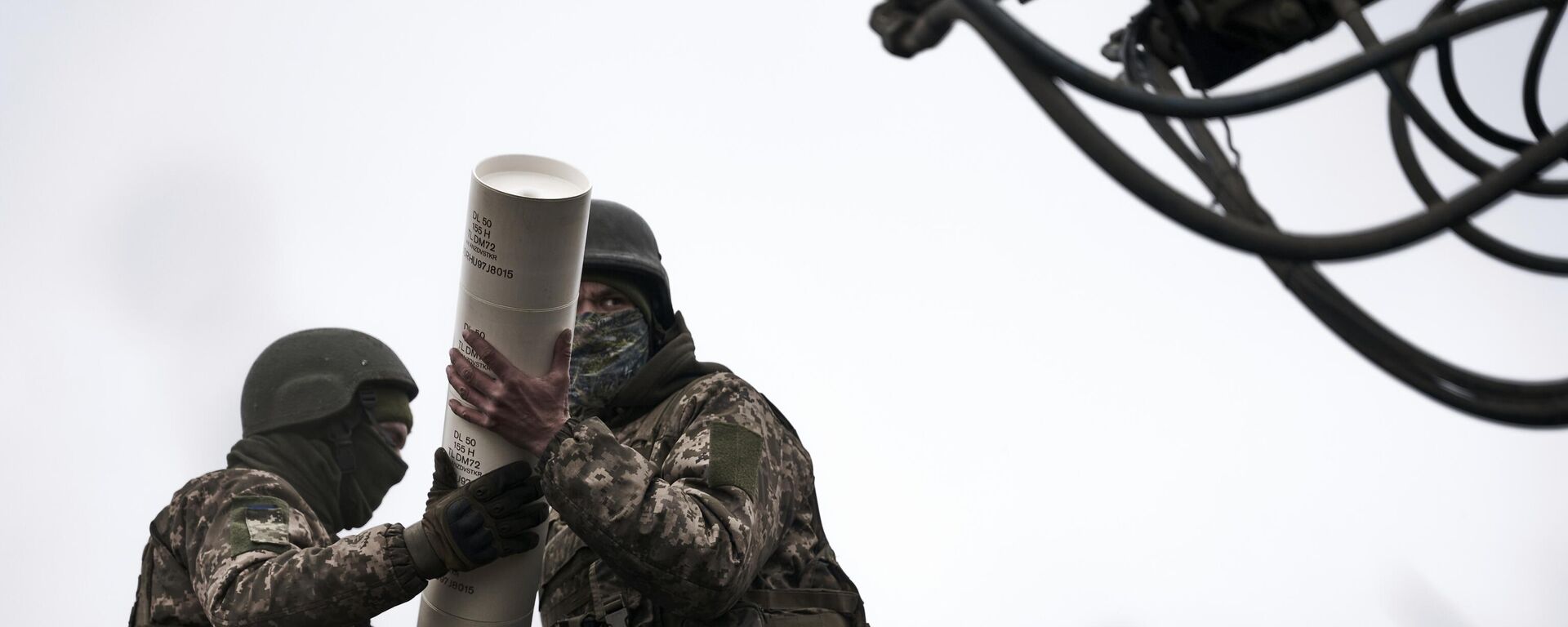https://en.sputniknews.africa/20240506/expert-warns-of-global-consequences-of-further-escalation-of-west-russia-tensions-1066392315.html
Expert Warns of Global Consequences of Further Escalation of West-Russia Tensions
Expert Warns of Global Consequences of Further Escalation of West-Russia Tensions
Sputnik Africa
Earlier in the day, in response to escalating tensions surrounding the Ukraine conflict and provocative statements from Western leaders, Russia's Defense... 06.05.2024, Sputnik Africa
2024-05-06T18:50+0200
2024-05-06T18:50+0200
2024-05-06T18:50+0200
russia's special operation in ukraine
emmanuel macron
russia
ukraine
france
united kingdom (uk)
david cameron
military exercises
military drills
arms supplies
https://cdn1.img.sputniknews.africa/img/07e8/03/13/1065631672_0:0:3637:2046_1920x0_80_0_0_1dec93f1f23334717d8c18b8e1bae07d.jpg
Further escalation of tensions between the West and Russia would destabilize Europe and the world, Dr. Nicodemus Minde, a researcher at the Institute for Security Studies in Nairobi, expressed his concerns in an interview with Sputnik Africa, advocating for strategic engagement with Moscow rather than confrontation.On Monday, the Russian Defense Ministry said it was planning drills with non-strategic nuclear weapons aimed at maintaining readiness and unconditionally ensuring Russia's territorial integrity and sovereignty. The development came in response to a series of provocative statements regarding the Russia-Ukraine conflict.Earlier, British Foreign Secretary David Cameron said during a recent visit to Kiev that Ukraine allegedly has the "right" to attack Russian territory with weapons supplied by London. Meanwhile, French President Emmanuel Macron has not ruled out sending French troops to the conflict zone.He highlighted the need for Western countries to reconsider sending troops to Ukraine, as this could dramatically escalate tensions and increase the risk of nuclear weapon deployment.Dr. Minde also acknowledged Russia's right to self-defense but cautioned against the potential consequences of Western involvement.The ramifications of this conflict extend far beyond Europe, impacting regions like Africa. Dr. Minde pointed out the implications for food security, fuel prices, and the geopolitical landscape, noting that African nations often find themselves caught in the crossfire of tensions between major powers, such as the West, Russia, and China.As an illustration of the global geopolitical shifts, the expert mentioned the situation in the Sahel region, where countries like Niger, Burkina Faso, and Mali are increasingly turning towards Russia for security partnerships due to dissatisfaction with Western neocolonial approaches.
https://en.sputniknews.africa/20240503/reuters-again-posts-withdrawn-story-about-kievs-right-to-strike-russia-with-uk-weapons-1066347750.html
russia
ukraine
france
united kingdom (uk)
west
Sputnik Africa
feedback@sputniknews.com
+74956456601
MIA „Rossiya Segodnya“
2024
Muhammad Nooh Osman
https://cdn1.img.sputniknews.africa/img/07e7/04/0a/1058467512_0:0:1280:1280_100x100_80_0_0_ec723833bcbfcaed2e21952965ad99e4.jpg
Muhammad Nooh Osman
https://cdn1.img.sputniknews.africa/img/07e7/04/0a/1058467512_0:0:1280:1280_100x100_80_0_0_ec723833bcbfcaed2e21952965ad99e4.jpg
News
en_EN
Sputnik Africa
feedback@sputniknews.com
+74956456601
MIA „Rossiya Segodnya“
Sputnik Africa
feedback@sputniknews.com
+74956456601
MIA „Rossiya Segodnya“
Muhammad Nooh Osman
https://cdn1.img.sputniknews.africa/img/07e7/04/0a/1058467512_0:0:1280:1280_100x100_80_0_0_ec723833bcbfcaed2e21952965ad99e4.jpg
emmanuel macron, russia, ukraine, france, united kingdom (uk), david cameron, military exercises, military drills, arms supplies, troops, international, west, north atlantic treaty organization (nato), russian ministry of defense, nuclear weapons
emmanuel macron, russia, ukraine, france, united kingdom (uk), david cameron, military exercises, military drills, arms supplies, troops, international, west, north atlantic treaty organization (nato), russian ministry of defense, nuclear weapons
Expert Warns of Global Consequences of Further Escalation of West-Russia Tensions
Muhammad Nooh Osman
Writer/Editor
Earlier in the day, in response to escalating tensions surrounding the Ukraine conflict and provocative statements from Western leaders, Russia's Defense Ministry announced upcoming exercises involving non-strategic nuclear forces. This move has sparked concerns about potential global repercussions, with experts warning of a dangerous escalation.
Further escalation of tensions between the West and Russia would destabilize Europe and the world,
Dr. Nicodemus Minde, a researcher at the Institute for Security Studies in Nairobi, expressed his concerns in an interview with
Sputnik Africa, advocating for strategic engagement with Moscow rather than
confrontation.
On Monday, the Russian Defense Ministry said it was planning drills with non-strategic nuclear weapons aimed at maintaining readiness and unconditionally ensuring Russia's territorial integrity and sovereignty. The development came in response to a series of provocative statements regarding the Russia-Ukraine conflict.
Earlier, British Foreign Secretary David Cameron said during a recent visit to Kiev that Ukraine allegedly has the "right" to attack Russian territory with weapons supplied by London. Meanwhile, French President Emmanuel Macron has not ruled out
sending French troops to the conflict zone.
"The most important thing right now is a rather strategic and of course, well-thought-out calculated move on how to really engage Russia as opposed to further confrontations," Dr. Minde stated.
He highlighted the need for Western countries to reconsider sending troops to Ukraine, as this could dramatically
escalate tensions and increase the risk of nuclear weapon deployment.
Dr. Minde also acknowledged Russia's right to self-defense but cautioned against the potential consequences of Western involvement.
"I think Brussels and other Western capitals really need to rethink this particular possibility of sending these troops, which can lead to massive escalation of tensions and of course, the probability of the usage of nuclear weapons," he said.
The ramifications of this conflict extend far beyond Europe, impacting regions like Africa. Dr. Minde pointed out the implications for food security, fuel prices, and the geopolitical landscape, noting that African nations often find themselves caught in the crossfire of tensions between major powers, such as the West, Russia, and China.
As an illustration of the global geopolitical shifts, the expert mentioned the
situation in the Sahel region, where countries like Niger, Burkina Faso, and Mali are increasingly turning towards Russia for security partnerships due to dissatisfaction with Western neocolonial approaches.
"France is losing a lot of its once very important allies and strategic countries such as Niger, Burkina Faso, Mali, Chad, for a great extent," Dr. Minde said. "These countries are seeing Russia as a very important security ally, as opposed to Western allies that have, often times, a very neocolonial and colonial posturing."




